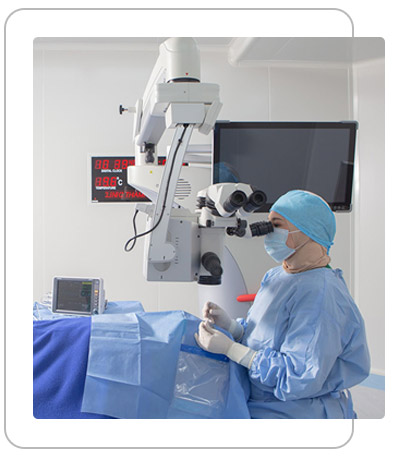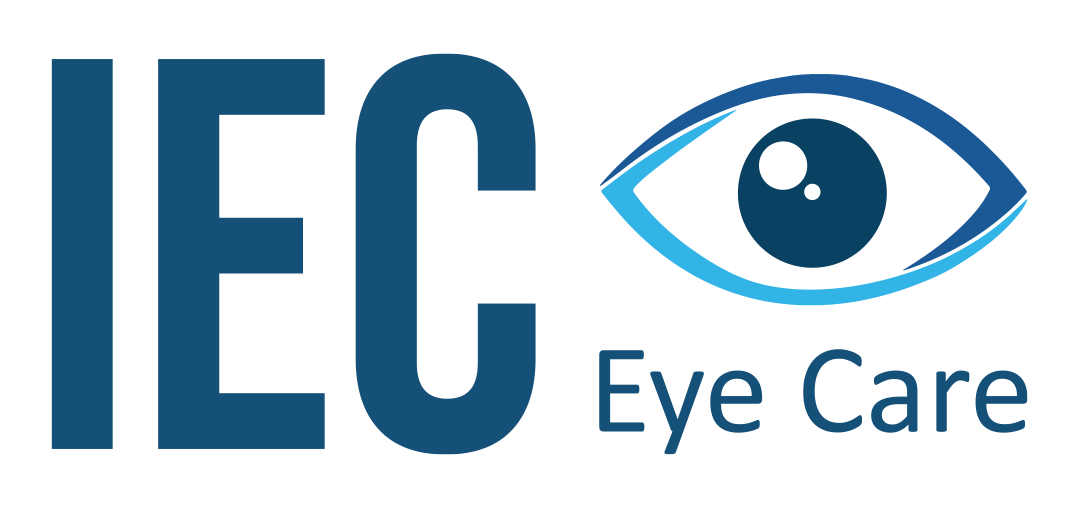Glaucoma Surgery

Protect Your Vision with Glaucoma Surgery by Experienced Doctors
Glaucoma surgery is a procedure designed to reduce intraocular pressure, which can damage the optic nerve and lead to vision loss. Glaucoma is often referred to as the “Silent Thief of Sight” because it typically shows no symptoms in its early stages. When glaucoma begins to impair vision and affects daily life, surgery is recommended to prevent further damage.
IEC Eye Care offers glaucoma surgery performed by highly experienced glaucoma specialists, supported by modern technology. With this approach, IEC Eye Care is committed to providing safe and effective treatment for each patient, helping to address vision issues caused by glaucoma optimally. The combination of our medical team’s expertise and advanced technology makes IEC Eye Care the ideal choice for quality glaucoma care.
Causes:
Glaucoma occurs when there is an imbalance between the production and drainage of aqueous humor fluid in the eye, leading to increased intraocular pressure and potential nerve damage. While the exact cause of this imbalance remains unknown, it can be associated with various risk factors, such as eye injuries, infections, blocked blood vessels, and a history of diabetes or hypertension. The risk of glaucoma also increases if there is a family history of the disease or if the patient has previously undergone eye surgery.
Symptoms:
In the early stages, glaucoma patients may experience peripheral vision loss or gradual narrowing of the visual field. Other symptoms include blurred vision, frequent headaches, and the appearance of glare or halos around lights. Patients may also feel eye discomfort or redness, especially if they have used steroid anti-inflammatory medications for an extended period or have high myopia or hyperopia. If you experience these symptoms, it is advisable to consult with a glaucoma specialist promptly to receive appropriate treatment and prevent further vision loss.





Promo 1
All-in-One Addons for Elementor

Promo 2
All-in-One Addons for Elementor

Frequently Asked Questions
Glaucoma is diagnosed through assessments of intraocular pressure, visual field testing (Humphrey Visual Field), and measurement of retinal nerve fiber layer (RNFL) thickness using optical coherence tomography (OCT). Early detection of glaucoma is generally based on observing RNFL thinning, which requires serial monitoring rather than a single test.
Glaucoma can only be managed, not cured. Therefore, it is essential to continue regular eye examinations with a glaucoma specialist. This approach can help slow down or prevent vision loss caused by the disease.
Glaucoma can affect individuals of all ages, from infants to the elderly, although it is most commonly found in those over 40 years of age. Higher risk factors include a family history of glaucoma, age over 40, high myopia or hyperopia, diabetes, hypertension, a history of eye trauma, and long-term use of steroid medications.
Glaucoma treatment focuses on lowering intraocular pressure, which can be achieved through eye drops, oral medications, surgery, or laser therapy. It is advised not to undergo any treatment without the close supervision of a glaucoma specialist to ensure safe and effective management.
To prevent glaucoma symptoms, have regular eye exams with dilation, know your family eye health history, exercise safely, wear protective eyewear, eat a healthy diet, limit caffeine intake (as it may increase eye pressure), and sleep with your head elevated.
Diabetes patients have a 40% higher risk of developing glaucoma. The longer a person has diabetes, the greater the likelihood of glaucoma occurring. Diabetes can also lead to open-angle glaucoma, which progresses slowly and causes gradual vision loss, often with symptoms such as blind spots around the edges of vision.

